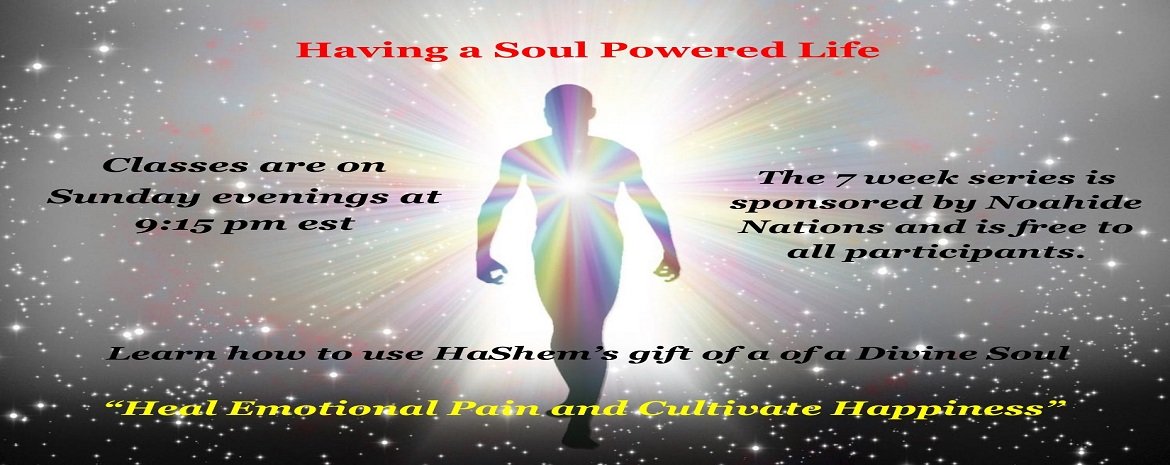LETTER FROM MULTIPLE RABBIS
- Category: GER/VENDYL JONES
An Open Letter Concerning the Teachings of Rabbis David Katz & Chaim Clorfene October 20, 2017
For Public Dissemination
It is with deep concern and sorrow that we, the undersigned, feel compelled to make this public statement regarding the teachings of Rabbis David Katz, Chaim Clorefene, and the pseudo-"Ger" movement that has grown from these teachings. We do so not as close associates or members of a common organization, but as trained rabbis serving the Noahide public from across a spectrum of Torah traditions and perspectives, unified in this hour of need. Finally, we do so only after having consulted Rabbi Yoel Schwartz א"שלט, who has unreservedly retracted any support of
- Katz or his teachings. (See his Rabbi Schwartz statement attached.)
Rabbis Katz and Clorefene have developed a renegade halakhic theory of non-Jewish/Noahide identity that is cleverly marketed as “Ger.” This theory is becoming attractive to non-Jews because it promises them an identity that is claimed to be more legitimate than Bnei Noach or “Noahides” and somehow “frees” non-Jews from idolatry. Among their most strident claims is that all other rabbis teaching the traditional Noahide Path of the Seven Laws are keeping their students “in idolatry” (!) by not accepting “Ger” according to their definition of this term. However, their attractive packaging and self-righteous vitriol cannot cover up the truth: that it is a contrived, maverick re-definition of codified Torah concepts that neither they, nor any rabbinical body in our time for that matter, have any authority, right, or reason to alter.
None of the sources that Rabbis Katz or Clorefene have quoted or claimed as the basis of their “ger” concept (i.e., the Raavad or the writings of Rav Aharon Soloveichik, etc.) are new or unknown to the rabbinical community. Many are standard rabbinical sources. However, the theory they have built around these sources is bizarre, misleading, and contrary to halakhah. Accordingly, it was deeply painful, though a relief, to learn from Rabbi Yoel Schwartz himself that the note of approbation that Katz had obtained from him for “The World of the Ger” was deviously contrived: The aged ultra-orthodox rabbi, a non-English speaker, issued Katz a short, general standard note of approbation, such as he regularly gives to new books, without knowing all the details of the work. He did so from a place of trust, in the hope of motivating and strengthening the hand of rabbis reaching out to build Noahide observance. When he was made aware of the full picture of Katz’s ideas and motives, how his trust was abused, and how his original note was later lengthened and blown up to be a categorical support for all of R. Katz’s ideology, it brought deep angst to the senior rabbi.
What makes Katz’s and Clorefene’s teachings particularly dangerous is that they involve deeply complicated issues that require extensive background to grasp. Rabbi Katz is aware that many of his students lack the sufficient mastery of the texts and issues involved—mastery required to understand why his teachings are so problematic. When deflecting legitimate criticism of his teachings, he preys on that ignorance. Knowing that his followers cannot independently verify the accuracy of what he is saying, he resorts to rhetorical tactics such as these:
When R. Katz’s followers are asked to check his mistranslations using outside sources, he deflects this challenge by telling them that existing translations are unreliable. When presented with sources that contradict him, he simply accuses other rabbonim of “not knowing how to learn,” or responds with ideas that are unintelligible and thereby impossible to refute because they are impossible to understand. When we have asked his followers to verify his teachings with a neutral third party, R. Katz again resorted to the claim that “that person (the third party) is unreliable” or “doesn’t know how to learn.” R. Katz's responses often sound authoritative to his followers because they quote rabbinical sources and use Hebrew. When experienced rabbis then explain why Rabbi Katz’s answers do not make sense, he responds, “See, my opponents don’t know how to learn.” When they do gain familiarity with the Torah sources, even educated Noahides can discern blatant fallacies of logic in Katz’s and Clorefene’s rhetoric: argument from repetition, moving the goal-posts, argument from authority, red-herring fallacy, appeal to emotion, and ad hominem attacks, to name a few. Whatever a challenge this can pose to veteran Noahides, no one suffers more from all this than those who are new to Torah.
This statement of ours must not be misunderstood as a personal, ad hominem attack of our own, Heaven forbid. It is painfully difficult for us to speak negatively about the work of any scholar earnestly trying to teach Torah. For years we held on to hope that Rabbis Katz and Clorefene would start giving their listeners a balanced perspective and, in the very least, commit to expressing themselves responsibly. Accordingly, several of us have each, to varying degrees, attempted to engage Katz privately to discuss these issues in a civil, respectful fashion (the blatant denial of this fact on his part is deceitful). Sadly, he quickly turned these private discussions into public spectacles, sharing our communications publicly, and childishly mocking his fellow rabbis who had approached him in good faith. He and Clorefene have engaged their followers in publicly disdaining and ridiculing respected teachers of Torah. Masking the cult-like aspect of the following he and Katz have created, Rabbi Clorefene ironically paints all the rest of the Noahide movement and its teachers as a “cult.” The Noahide organizations that they and their pseudo-“Ger” followers discredit have worked closely with the rabbinical community for years, with the common goal of shining the light of truth on the Gentile relationship with HaShem. Just as Judaism is taught with rabbinical sources, Noahism too can only be taught with those same rabbinical sources; they are both parts of one and the same tradition. These organizations provide the necessary platforms for this truth to be disseminated to the Gentile world.
While Katz and Clorefene may initially attract the love and loyalty of their listeners, this hostility ultimately distances those innocent souls from Torah and the Jewish People, undermining centuries of Jewish teaching in their eyes. When their followers see their role-models spurning and belittling the counsel of their peers and great rabbis of the generation, they learn to hold traditional Torah scholarship in suspicion and even contempt. What they would see, if their eyes were opened, however, are two scholars, utterly alone in their views, who will not engage in normal rabbinical discourse – all on account of a revisionist theory that contradicts foundational halakhah. It is akin to a marital conflict in which an unfaithful husband spurns the counsel of his professional, deeply-caring peers. Feeling cornered on account of his vices, he instead resorts to turning his child against the mother.
Although David Katz’s teachings contain some truth, they are mixed with complicated, difficult distortions, and tainted with egotism and hostile rhetoric. Rather than working to strengthen the bridges built over decades of work by numerous rabbis and teachers – bridges between noble non-Jewish souls and the Torah community – Rabbis Katz and Clorefene have chosen to burn those bridges with hostile and divisive rhetoric. As such, the teachings of these two men have become “a stumbling block before the blind.” Therefore, we strongly urge every G-d fearing person and lover of Torah truth to distance him or herself from the pseudo- “Ger” movement, David Katz and Chaim Clorefene, and their teachings.
Signed:
Rabbi Moshe Weiner
Jerusalem, Israel
Author of Sheva Mitzvot HaShem and The Divine Code
Rabbi Chaim Richman
International Director of The Temple Institute
Author of A House of Prayer for All Nations: The Holy Temple of Jerusalem and The Holy Temple of Jerusalem
Rabbi Avraham Sutton
Kiryat Ye`arim, Israel
A teacher of Torah, kabbalah, Talmud, chassidut and more for over 30 years. He has translated, edited and/or authored over 20 major Torah works in English.
Rabbi Avraham Chaim Bloomenstiel
Moreh Horaah & Rosh Chabura Choshen Mishpat, Yeshiva Keter HaTorah
Author of the Pirchei Shoshanim Noahide Laws Project
Rabbi Michael Shelomo Bar-Ron
Beit Shemesh, Israel
Founder and Head of Beth Midrash Ohel Moshe, Beit Shemesh, Israel
Author of Guide For The Noahide, Oral Torah From Sinai, and Song Of The Creator
Rabbi Chaim Coffman Beitar Illit, Israel
For many years, Rabbi Coffman has been working with both Noahides and those in the process of conversion to Judaism, teaching and guiding them under the auspices of HaRav HaGaon Moshe Shternbuch.
Rabbi Moshe Perets
Executive Director
The Noahide Academy of Jerusalem Jerusalem, Israel


 French (FR)
French (FR)  English (UK)
English (UK) 




